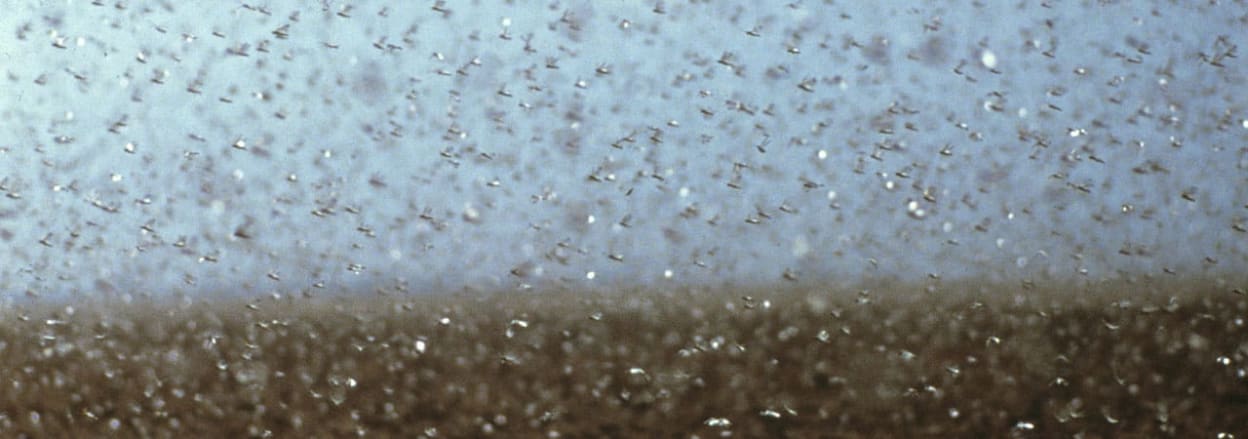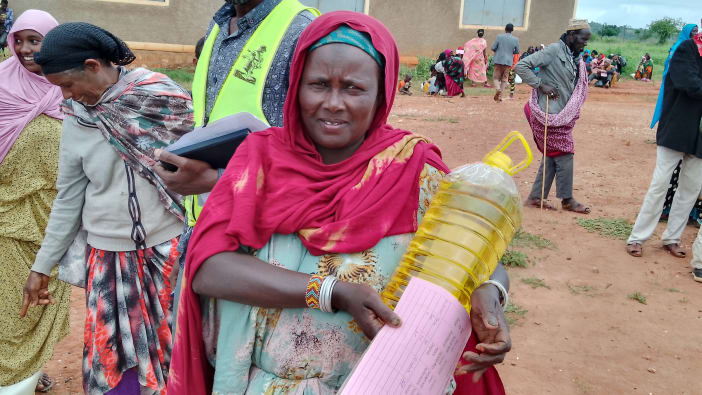Swarms of locusts add to coronavirus concerns in East Africa
Written by Tearfund | 15 Apr 2020



Written by
Written by Tearfund
A new wave of crop-eating locusts is devastating East Africa, just as communities brace themselves for an increase of coronavirus cases.
At the start of 2020, Ethiopia and Somalia faced the biggest invasion of the insects in 25 years – and the worst in Kenya and Uganda for 70 years.
They also reached parts of South Sudan, where millions of people are already suffering from severe food shortages amid conflict and political instability.
The latest plague could be 20 times larger.
The UN Food and Agriculture Organisation (FAO), is calling it ‘an unprecedented threat’ to food supplies and jobs.
Where have the locusts come from?
Unusual weather patterns in Yemen provided the perfect breeding ground for the insects, which then came over the sea into East Africa.
The second wave of insects will now hit countries where millions of people struggle to provide food for their families. It will be devastating for them as their new crops are likely to be ruined by the locusts.
‘'It will also make people more vulnerable to coronavirus.'’
Tackling the locusts will be even harder now that coronavirus has forced governments to close their borders. With severely reduced air travel and cargo shipping, pesticides from Europe and Asia can’t get into the countries – and to the farmers – that need them. Tearfund is asking governments to recognise activities responding to the locust swarms as essential services, so that they can continue despite the restrictions on travel.
A double threat
In Ethiopia, Tearfund is partnering with the Friendship Support Association (FSA) in Afar, one of the regions heavily affected by locusts.
Emergency cash grants are being given to 875 of the most vulnerable households. This will help more than 5000 people whose lives have been greatly affected by the locust invasion.
They will be able to buy food and other essentials. Parents will also be able to continue to pay school fees so that children aren't forced to drop out and miss out on vital education.
‘The locust plague, together with the coronavirus pandemic, could mean all the work Tearfund supports communities with is on the brink of collapsing,’ says Ephraim Tsegay, Tearfund’s Country Director for Ethiopia.
‘If the second wave of locusts is not prevented before it inflicts further damage, more people will be forced to leave their homes to find food, land for their animals to graze, and an income elsewhere. It will also make people more vulnerable to coronavirus.
‘We’re likely to see more economic insecurity, higher inflation, conflict between communities over getting access to animal feed, and a greater need for emergency food assistance.’
PLEASE PRAY
Father God,
Please protect people who are facing a new wave of locusts in East Africa. In your mercy, may the swarms disperse and crops be able to grow and flourish. Help our partner organisation, FSA, to be able to reach even more people affected by the locusts so they can provide for their families. And grant wisdom to leaders in countries who are responding to both locusts and coronavirus, so they are able to find solutions and protect the most vulnerable.
In Jesus’ name we pray, amen.
Photo credit: CSIRO/ Creative Commons (licence)
Similarly Tagged Content
Share this page
Share this page to spread the word and help support those in need.

Get our email updates
Learn about our work and stay in touch with Tearfund. Hear about our news, activities and appeals by email.
Sign up now - Get our email updates






